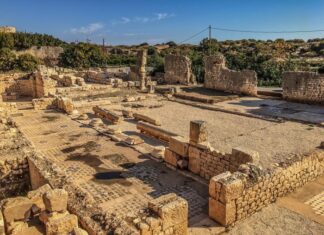23. If a river, entirely forsaking its natural channel, begins to flow in another direction, the old bed of the river belongs to those who possess the lands adjoining its banks, in proportion to the extent that their respective estates adjoin the banks. The new bed follows the condition of the river, that is, it becomes public. And, if, after some time, the river returns to its former channel, the new bed again becomes the property of those who possess the lands contiguous to its banks.
24. The case is quite different if anyone’s land is completely inundated; for the inundation does not alter the nature of the land, and therefore, when the waters have receded, the land is indisputably the property of its former owner.
25. When one man has made anything with materials belonging to another, it is often asked which, according to natural reason, ought to be considered the proprietor, whether he who gave the form, or he rather who owned the materials. For instance, suppose a person has made wine, oil, or wheat from the grapes, olives, or ears of corn belonging to another; has cast a vessel out of gold, silver, or brass, belonging to another; has made mead with another man’s wine and honey; has composed a plaster, or eye-salve, with another man’s medicaments; has made a garment with another man’s wool; or a ship, or a bench, with another man’s timber.
Sabinians and Proculians
After a long controversy between the Sabinians and Proculians, a middle opinion has been adopted based on the following distinction. If the thing made can be reduced to its former rude materials, then the owner of the materials is also considered the owner of the thing made; but, if the thing cannot be so reduced, then he who made it is the owner of it. For example, a vessel when cast, can easily be reduced to its rude materials of brass, silver, or gold; but wine, oil, or wheat, cannot be reconverted into grapes, olives, or ears of corn; nor can mead be resolved into wine and honey.
But, if a man has made anything, partly with his own materials and partly with the materials of another, as if he has made mead with his own wine and another man’s honey, or a plaster or eye-salve, partly with his own, and partly with another man’s medicaments, or a garment with his own and also with another man’s wool, then in such cases, he who made the thing is undoubtedly the proprietor; since he not only gave his labor, but furnished also a part of the materials.
Read More about Michael V Part 16







